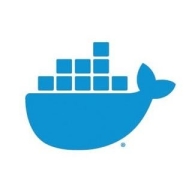

Amazon EKS and Docker compete in the field of container management solutions. Amazon EKS holds an advantage with robust multi-cloud integration and scalability, while Docker excels in straightforward deployment and user experience.
Features: Amazon EKS provides a managed Kubernetes service, Fargate, which abstracts cluster management, offering scalability and security. It supports complex applications and multi-cloud integration. Docker offers containerization with easy setup, portability, and efficient resource usage, appreciated for its simple user experience.
Room for Improvement: Amazon EKS can enhance stability and plugin integration and address pricing concerns for smaller customers. It could also simplify management and ease its learning curve. Docker would benefit from improved documentation, security management, and stability as deployments sometimes face compatibility issues. Users also seek better onboarding for new developers.
Ease of Deployment and Customer Service: Amazon EKS deployment facilitates scalability and AWS integrations but has a complex initial setup. Docker, suitable for on-premises setups, is praised for its simplicity and agility. Amazon offers EKS customer support with variable response times, whereas Docker, easy to use, requires minimal formal support.
Pricing and ROI: Amazon EKS uses a pay-as-you-go pricing model based on instance usage, potentially expensive for smaller businesses but offers strong ROI through scalable solutions. Docker is open-source with free personal and small-scale usage, while enterprise versions involve costs but provide a cost-effective solution maximizing resource efficiency.
Initially, not having them resulted in an unoptimized solution. However, with these tools in place, we witnessed a reduction of costs by approximately a third—if it was $100 beforehand, we brought costs down to $25.
Tasks that used to take hours are now completed in minutes, resulting in a 10 to 15% freeing up of resources' time for cross-skilling or further contributions.
Developer productivity and onboarding have also improved, leading to 60 to 70% faster onboarding and faster time to market.
I can do containerization and share it with every computer, making it work for everyone.
We didn't need to manage etcd and those control management tools; it's totally handled from the AWS side, making it very beneficial.
I believe there should be a recovery solution available for at least a few hours so that we might bring it back.
They will set up a call, guide us, or provide solutions regarding integration with AWS or Amazon EKS.
From what I gather, customer support is great; they are quick and always available to support or help.
The ability to scale based on requirements by deploying additional containers is a strong point for Kubernetes.
This allows us to scale our applications or APIs as needed, offering reliability through the automation of scaling processes.
If any node is not ready, the cluster autoscaler ensures that it is removed from the AWS auto-scaling group and replaces it with a new node in the cluster.
Previously, only one or two applications could run on a server, but now it can handle hundreds of applications, scaling up or down as needed.
A realistic metric I observe is that I can scale services from two to over 20 containers without code changes.
There are multiple availability zones in the regions, meaning no single point of failure.
The control plane is quite stable in Amazon EKS, and I find it to be 100% available.
We haven't faced any challenges, and it consistently delivers on its committed SLA.
Docker has been very stable in my environment, especially once best practices and proper organization were in place.
Simplifying these will enable more people, not just those with strong foundational knowledge, to work effectively with these services.
Amazon EKS can be improved by having the maintenance of Kubernetes versions managed better, as everything is handled by the Kubernetes team and possibly a separate team at AWS.
Adding logging would be a valuable improvement.
Docker is a time-tested, proven solution with industry-wide applications.
Windows containers are heavier and slower than Linux containers.
In terms of communication between services, perhaps the configuration within networks between containers could be improved.
The EKS service itself is free, but you will incur costs for the VMs used as nodes in that cluster.
If you want to monitor costs effectively, applying separate tools and acting accordingly in advance is essential.
I appreciate the overall pricing model of AWS, where you pay based on usage, which allows for a clear understanding of costs associated with services.
Docker Desktop is free for individual developers and small teams, but a paid subscription is required for large enterprises.
I consider Docker's pricing to be affordable.
The most beneficial aspect of Amazon EKS is that it helps manage the Kubernetes master node, so I don't need to maintain the master node, including tasks like upgrading.
The main benefits that I received from using Amazon EKS are that it is a managed cluster and offers simplicity.
By default, if you just install Amazon EKS, you can deploy your application, but to have it enterprise-ready, you have to configure a number of other things that will boost productivity.
It allows the software to run on various machines without compatibility issues, saving a lot of time.
Good security capabilities are included as well, providing image scanning, non-root containers, and minimal base images that reduce the attack surface.
The most valuable feature is the simple containerization.
| Product | Market Share (%) |
|---|---|
| Amazon EKS | 12.8% |
| Docker | 4.7% |
| Other | 82.5% |

| Company Size | Count |
|---|---|
| Small Business | 32 |
| Midsize Enterprise | 23 |
| Large Enterprise | 46 |
| Company Size | Count |
|---|---|
| Small Business | 22 |
| Midsize Enterprise | 4 |
| Large Enterprise | 35 |
Amazon Elastic Kubernetes Service (Amazon EKS) is a fully managed Kubernetes service. Customers such as Intel, Snap, Intuit, GoDaddy, and Autodesk trust EKS to run their most sensitive and mission critical applications because of its security, reliability, and scalability.
EKS is the best place to run Kubernetes for several reasons. First, you can choose to run your EKS clusters using AWS Fargate, which is serverless compute for containers. Fargate removes the need to provision and manage servers, lets you specify and pay for resources per application, and improves security through application isolation by design. Second, EKS is deeply integrated with services such as Amazon CloudWatch, Auto Scaling Groups, AWS Identity and Access Management (IAM), and Amazon Virtual Private Cloud (VPC), providing you a seamless experience to monitor, scale, and load-balance your applications. Third, EKS integrates with AWS App Mesh and provides a Kubernetes native experience to consume service mesh features and bring rich observability, traffic controls and security features to applications. Additionally, EKS provides a scalable and highly-available control plane that runs across multiple availability zones to eliminate a single point of failure.
EKS runs upstream Kubernetes and is certified Kubernetes conformant so you can leverage all benefits of open source tooling from the community. You can also easily migrate any standard Kubernetes application to EKS without needing to refactor your code.
Docker provides a robust containerization platform, enabling identical environments across machines. With features like portability, fast deployment, and minimal resource consumption, Docker supports development, facilitating multitier architectures and integrating seamlessly with Kubernetes.
Docker offers an advanced containerization solution that enhances application management through automation and security measures. By isolating environments and managing dependencies, Docker supports platforms for scalable application development. Its integration with orchestration tools like Kubernetes and independence from host operating systems enable developers to create lightweight applications effectively. Although known for its cost efficiency and flexibility, Docker could improve in areas such as stability, command-line usability, and Windows performance integration. Users also point out the need for enhanced documentation, simplified management tools, and better persistence storage options, along with stronger marketing and easier user adoption.
What important features does Docker provide?Industries leverage Docker for application packaging, deploying microservices, and CI/CD processes. It supports DevOps, enhances backend service management, and enables resource-efficient development environments. Docker's compatibility with tools such as Jenkins ensures seamless integration and orchestration in modern IT workflows.
We monitor all Container Management reviews to prevent fraudulent reviews and keep review quality high. We do not post reviews by company employees or direct competitors. We validate each review for authenticity via cross-reference with LinkedIn, and personal follow-up with the reviewer when necessary.